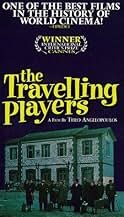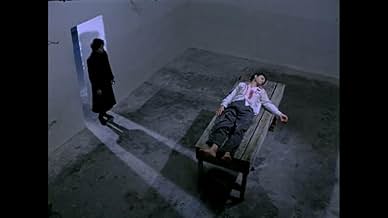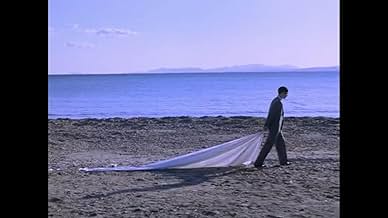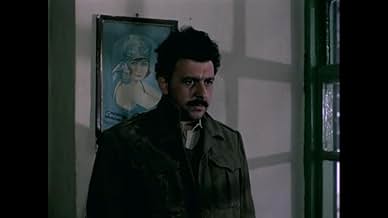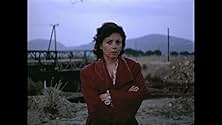PUNTUACIÓN EN IMDb
7,8/10
4,5 mil
TU PUNTUACIÓN
Grecia, 1939-1952: el conflicto fascista, nazi y comunista visto a través de los ojos de una familia de actores viajeros de provincia.Grecia, 1939-1952: el conflicto fascista, nazi y comunista visto a través de los ojos de una familia de actores viajeros de provincia.Grecia, 1939-1952: el conflicto fascista, nazi y comunista visto a través de los ojos de una familia de actores viajeros de provincia.
- Premios
- 12 premios y 2 nominaciones en total
Argumento
¿Sabías que...?
- CuriosidadesThe whole film is accomplished in around 80 shots.
- Citas
Elektra's Father: [before he is executed by the Germans] I came cross the sea, from Ionia. Where did you come from?
Reseña destacada
This was a long Angelopoulos war movie...
Necessary to underline the long battle of the country to preserve its roots in a time of transition and also to show its slow resolve. In its first half the identity of the country stays in its actors that, during a war, are still trying to entertain with subversive messages but also make a living. They are the resistance, keeping the past alive through the folklore plays, keeping the culture alive in these times filled with turmoil.
Actors are like soldiers in the first half and are fighting the nazis with folklore ideology and metaphors. When one is captured or killed the ones that remain have to fight even harder, but still smartly, low-key. In the second half we have the same but the actors on the other side have changed, with different ideologies but who also want one thing - to eradicate the culture that was there originally and replace it by force with a foreign one. There were two forces who fought for the soul of Greece, the communists (Russia) and the imperialists (UK). All the while, its people, being split, are trying to keep the soul alive. Fundamentals of a war, after all.
All of these big-picture events have a small-picture effect on its citizens, the theatre troupe, in this case, where the changing of generations and mentality takes place...also by force.
It's a long one, one that has to interest you to keep you engaged because Theo's style are these sweeping shots, long takes, silent scenes where nothing much is happening but volumes are written about the meaning.
Necessary to underline the long battle of the country to preserve its roots in a time of transition and also to show its slow resolve. In its first half the identity of the country stays in its actors that, during a war, are still trying to entertain with subversive messages but also make a living. They are the resistance, keeping the past alive through the folklore plays, keeping the culture alive in these times filled with turmoil.
Actors are like soldiers in the first half and are fighting the nazis with folklore ideology and metaphors. When one is captured or killed the ones that remain have to fight even harder, but still smartly, low-key. In the second half we have the same but the actors on the other side have changed, with different ideologies but who also want one thing - to eradicate the culture that was there originally and replace it by force with a foreign one. There were two forces who fought for the soul of Greece, the communists (Russia) and the imperialists (UK). All the while, its people, being split, are trying to keep the soul alive. Fundamentals of a war, after all.
All of these big-picture events have a small-picture effect on its citizens, the theatre troupe, in this case, where the changing of generations and mentality takes place...also by force.
It's a long one, one that has to interest you to keep you engaged because Theo's style are these sweeping shots, long takes, silent scenes where nothing much is happening but volumes are written about the meaning.
- M0n0_bogdan
- 23 mar 2023
- Enlace permanente
Selecciones populares
Inicia sesión para calificar y añadir a tu lista para recibir recomendaciones personalizadas
- How long is The Travelling Players?Con tecnología de Alexa
Detalles
Contribuir a esta página
Sugerir un cambio o añadir el contenido que falta

Principal laguna de datos
By what name was El viaje de los comediantes (1975) officially released in India in English?
Responde

